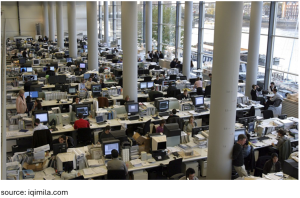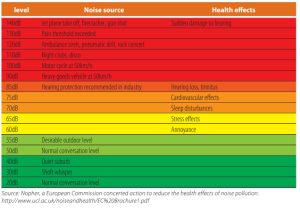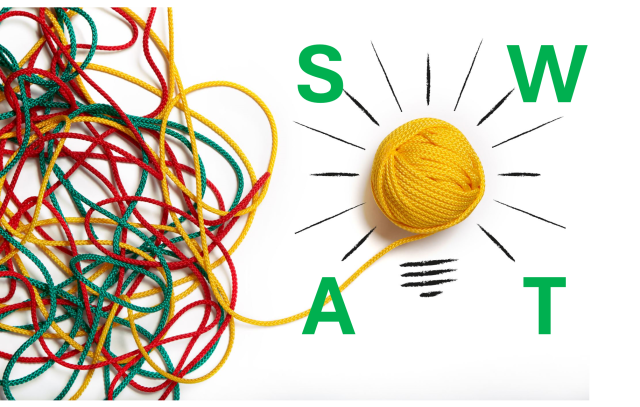Is it really good to work in an open office?
The physiological effects of working in an open office

Once I moved to full-time freelance from full-time employed, I immediately realized the changed circumstances, including notably the silence around me. There were only a few things I missed after leaving my corporate job – I would highlight my co-workers –, but not the noise and distractions caused by the open office setting.
The concept of the open-plan office is believed to have been invented by architect Frank Lloyd Wright in the early 20th century. According to him, walls and closed offices do not serve the intended purpose; i.e. they do not support creative thinking or communication and keep employees separated. I would love to check those offices back in time. Most probably, there would not be much difference compared to the modern open offices apart from using typewriters instead of computers.
Now, let’s see how an open office works, and what happens there day by day (it is intentionally exaggerated a bit to put distractions into focus):
Arrival at work * if you’re the first to arrive, you’re lucky because you can be productive since there is no hustle and bustle around you yet* then the others start to wander in, greetings and handshakes… often* a first meeting or call, you put on the headphones, which at best you can take off a few times during the day, but at worst they stay on you all day long .. and you can’t even decide whether it is better constantly wearing them…..at least the people sitting around you won’t bother you * no meeting, no call, you can take it off, but by doing so you experience so much noise around you that you cannot even hear your own thoughts*, in addition, the colleagues also start to turn to you with their comments, requests and questions * it is almost the end of the day and you literally couldn’t finish a single task because there was always someone with something to say to distract you from your work * you are in a hurry to finish something by starting the same task over and over again due to constant distraction * while leaving work for the next day you realize that your ears hurt from the headphones, your head hurts from the continuous noise* and the same gets repeated the next day.
What does research say about the risk of noise to our health?
Office noise can reach up to 60 decibels (dB), which does not seem particularly loud, but spending years in continuous noise can significantly impact our nervous system. Background noise above 40 dB can cause disturbing effects, but above 65 dB, it also adversely affects the functioning of the vegetative nervous system.
Noise at work can be a stressor even if the noise level is not high enough to require steps to prevent hearing loss. The frequent ringing of phones, the constant buzz of office equipment and air conditioning are all examples of a long list of noise sources. In the case of tasks requiring concentration, even the conversation of others can increase stress, negatively affecting the functioning of the circulatory system, digestion, or breathing.
A study called „Noise in Figures” by the European Agency for Safety and Health at Work contains many noise-related statements and a correlation between noise level and adverse effects.

What can we do to mitigate the negative effects of an open office?
The evaluation of the open-office concept made some privacy possible by applying separators, boxes, and soundproofing walls and floors. In addition, many companies pay attention to having a chillout room, with comfortable seating and indoor plants, helping the employees disconnect from the day-to-day reality for a while.
Beyond scientific definitions, noise and distraction are what you individually consider noise and distraction regardless of the volume of noise, the variety of its sources, or the types of distractions.
We can also do some things to mitigate the effects, such as placing plants, and pictures of our family or pets on our desks. These do not eliminate the cause of the negative effects, but at least moderate them because they make you feel better.
We haven’t even mentioned that we all have different social sensibilities. Not everyone enjoys being surrounded by many people and introverted people may find such an environment particularly stressful. Being aware of our potential high sensitivity in social settings, we can do prior research or ask for information about the company and the working conditions during job interviews.
Let’s make the most of these opportunities, our health will thank us.





